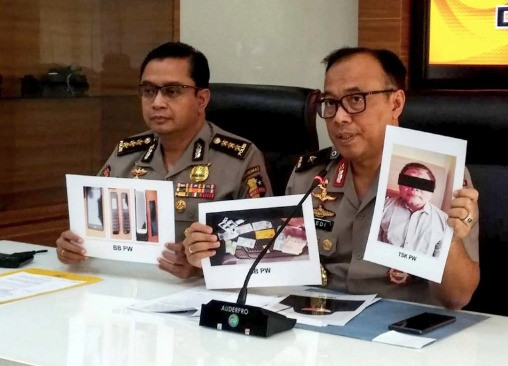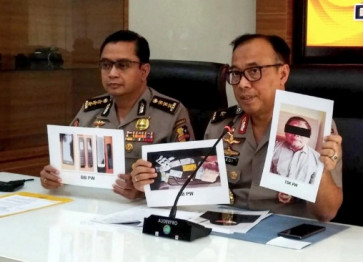Popular Reads
Top Results
Can't find what you're looking for?
View all search resultsPopular Reads
Top Results
Can't find what you're looking for?
View all search resultsPicking up the pieces: Addressing the aftermath of JI's dissolution
It is necessary to balance societal integration, allowing former terror group members to reintegrate without fostering a celebrity status that could glamorize their past actions.
Change text size
Gift Premium Articles
to Anyone
O
n June 30, the terrorist group Jemaah Islamiyah (JI), infamously known for the Bali bombings and its affiliations with al-Qaeda and the al-Nusrah Front, announced their disbandment in a video on YouTube. The video featured several of JI's board members, including former leader Para Wijayanto.
This development is a testament to the government's long-term counterterrorism efforts, particularly those of the National Police’s Densus 88 counterterrorism squad and the National Counterterrorism Agency (BNPT). Their relentless efforts deserve commendation for achieving this significant milestone in Indonesia's fight against terrorism.
Nevertheless, this dissolution does not mark the end of Indonesia's struggle against terrorism, as splinter groups remain a potentially significant threat. It is also important to consider other implications and future directions, including the possible shift of terrorist groups into the political sphere, the importance of reintegration and managing JI's remaining infrastructure, such as its schools and Quranic learning centers (TPQs).
Terrorist or extremist groups are composed of adaptable individuals capable of change, including transitioning from extremism to political participation. As David L. Phillips in From Bullets to Ballots argues, extremist movements often evolve to realize that terror and violence are ineffective compared to political processes.
Historical precedents support this adaptability. In Indonesia, the Free Aceh Movement (GAM) transitioned from a violent separatist group to a political entity, with its members significantly influencing regional governance.
Globally, the Taliban in Afghanistan has also followed a similar trend where it transitioned from an insurgent group to a de facto government after the United States withdrew its troops in 2021. Despite ongoing human and women's rights concerns, the Taliban is engaged in politics and diplomatic relations, seeking international recognition.
The transition of JI into politics has been a subject of discussion. Under the leadership of Para (2008-2019), JI emphasized da’wah (education), recruitment and organizational development over violent actions.



















